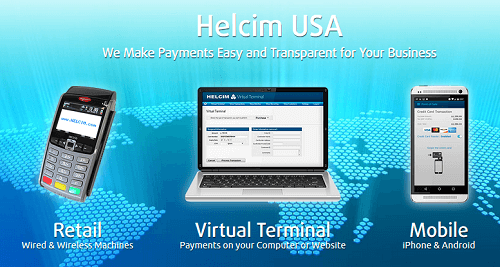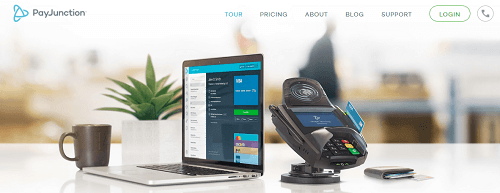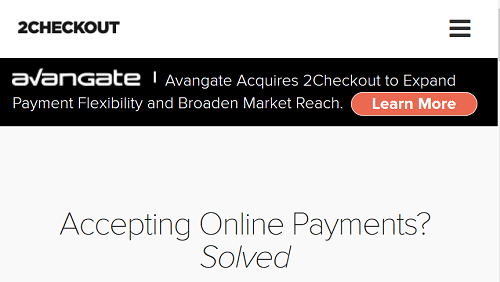No matter how great your eCommerce shop looks, you never reap any of the benefits unless you get a prospective customer to make an actual purchase. Your site visitors will never make a purchase unless they feel like they can trust you 100% with their financial information.
[clickToTweet tweet=”Choose a secure, feature-packed payment processor to finalize online transactions.” quote=”Choose a secure, feature-packed payment processor to finalize online transactions.”]
There is a lot of confusion between the terms payment gateway and payment processor when it comes to online stores. Though each one plays a role in the chain of action that makes up payment processing, the lines between the two can become blurry.
Let’s do a quick rundown on payment gateways and processors and then focus on the different types of payment processors available to you.
What is a Payment Gateway?
A payment gateway is a secure online portal that works with your customers when they enter their payment information. It authorizes the payment and can be thought of as the point-of-sale terminal of your eCommerce shop.
In short, the payment gateway collects your customer’s payment information. From there, it either finalizes the transaction (as is the case with third-party payment gateways such as PayPal) or connects with your website’s payment processor to finish the transaction.
Common payment gateways for WordPress eCommerce sites include:
- PayPal
- net
- Stripe
- Braintree
Keep in mind that many WordPress eCommerce solutions, such as WooCommerce, include multiple payment gateways such as the ones mentioned above. And typically, you do not need a payment processor to finalize most WooCommerce transactions.
However, some eCommerce platforms do require a payment processor. This is especially true for retailers that that gross millions in sales a year.
What is a Payment Processor?
Payment processors, also called merchant accounts, transmit financial information between your website, the customer’s issuing bank, and the acquiring bank (which is yours).
After a customer has made a purchase on your website and has entered their payment information (such as their credit card numbers), the payment processor then executes the payment and finalizes the transaction.
In fact, payment processors are responsible for the following
- Managing the relationships between your business and credit card companies
- Handling your customers’ personal and financial information
- Processing transactions by withdrawing money from your customer and crediting it to your account
- Transferring funds to your bank account
Keep in mind that sometimes the same company will provide online shop owners both a payment processor and multiple payment gateways for finalizing online transactions. However, it is also possible for you to use two separate companies if you want to.
Let’s take a look at some of the most common WordPress payment processors so that when it comes time to open up shop you can be fully prepared.
Top WordPress Payment Processors
1. Selz

Selz gives website owners the ability to build an eCommerce store right on top of an existing website or blog. For instance, they offer pre-defined themes, a custom domain and free SLL certificate, built-in social sharing, and even the ability to sell from your Facebook page. In addition, you can utilize the built-in buy buttons, access sales metrics, give customer discounts, and even integrate a shopping cart.
Additional features include:
- Install the free Selz WordPress plugin for basic eCommerce function
- Easily integrate with your WordPress website in minutes
- Use Selz Pay, PayPal, or 2Checkout as payment gateways for processing credit cards
- Rest assured the latest SSL encryption is in place for secure transactions
- 100+ currencies accepted
- Customized order confirmations with upsell and cross sell capability
- Get paid weekly using Selz Pay
PRICE: Starting at $12.99/month
2. Helcim

Helcim is an all-purpose payment processor that works in–person, via mobile device, and as an online eCommerce credit card processor. Implement recurring billing cycles, email invoice requests, and host shopping carts such as Ecwid, Shopify, and BigCommerce. Alternatively, if you prefer to download your shopping cart and integrate it into your website so with the likes of Magento, Squirrel Cart, or the ever-popular WooCommerce.
Additional features include:
- Virtual Terminal with easy login for entering customer credit card information
- Built-in acceptance of Visa, Mastercard, and Discover cards
- 2-day bank settlements meaning you get paid quickly
- Credit Card Vault for safekeeping of customers’ financial information
- Directly integrate payment gateways into your website, shopping cart, billing system, or application
- Integrate the third-party payment gateway Authorize.net
- No PCI compliance fees
PRICE: $25/month
3. PayJunction

PayJunction is the perfect payment processor for mid- to large-scale businesses. For example, it offers things like smart payment processing, electronic signature capturing, and multi-user, multi-location reporting. In addition, it allows you to send digital receipts to customers, reduce the chances of chargebacks, and turn any web browser into a virtual terminal for finalizing purchases, processing checks, and recharging accounts.
Additional features include:
- Comprehensive reporting for accountability and business growth
- Connect with third-party applications like Magento and Shopify, and WooCommerce
- PCI and HIPAA compliant
- Next day deposits
- Easily search all transactions
- Qualified businesses receive one free Smart Terminal for in-person purchase
- Price match guarantee
PRICE: FREE
4. 2CheckOut

2Checkout enables merchants like you to accept secure, worldwide mobile and online payments. For example, it meets the highest PCI compliance and implements strict fraud rules so you can rest assured your data and the financial information of your customers is safe. Additionally, you can integrate this payment processor directly onto your website in minutes and start selling to customers right away.
Additional features include:
- Responsive by design and mobile-friendly
- 8 payment methods and 87 currencies
- Enable recurring billing
- Integrate with dozens of popular open-source shopping carts
- Accept PayPal, major credit cards, and even debit card transactions
- Receive funds via EFT, wire transfer, or Payoneer in the currency of your choice
- 87 currency options
PRICE: FREE
Notable Mentions
There are plenty of popular payment processors available to website owners offering lots of features, competitive pricing, and ease of use.
Here are some notable mentions that may be better suited for your individual needs:
Final Thoughts
If you are looking to open an online shop, it is important you consider how you will accept payments on your website. And, while many eCommerce platforms integrate payment gateways into their software for use by website owners, the truth is, sometimes you need something with more features and more handling power.
Altogether, if you are a medium to large size online retailer or expect to grow that big, you may want to consider utilizing the power of a payment processor. And with the right one, you may not even need to invest in a separate payment gateway to accept payments.






Thanks, Lindsay. This is informative. I have just gone through this process of finding a payment gateway provider.
Another issue facing revenue collecting storefronts is VAT collection and the subsequent payment of VAT to the relevant governments. VAT is calculated based on the location of the buyer and vendors are dealing with relatively new collection and disbursement requirements. Payment gateways might provide a report that the vendor’s accounting department can use to segregate the funds properly. Sometimes those reports can be formatted so they can be uploaded (more or less) directly in the vendor’s accounting system. VAT must be paid to the governments quarterly.
Others recommend using an intermediary such as Taxamo, which intervenes in the revenue flow to segregate and collect the VAT and then forward those funds to each of the required governmental tax agencies. One benefit of these intermediaries is that they also take on the liability for collecting and forwarding the revenue in accordance with regulations.
HI Kurt Pritz,
Thank you so much for shedding light on this concept. As I live in the United States, and do not run an online shop, the term VAT was a new one for me that I had to quickly look up. In the United States, we simply deal with sales tax.
Since I had never heard of this before, or at least never understood what it meant or who it applied to, the thought of seeing whether a payment gateway had any functionality related to VAT collected never occurred to me.
This is why reader engagement is so important! I thank you for sharing this information with me and the DNW readers. If VAT collection applies to you, it would be important to figure out the best way to collect,track, and disburse the right amounts. I especially appreciate your mention of Taxamo. That seems like a great solution.